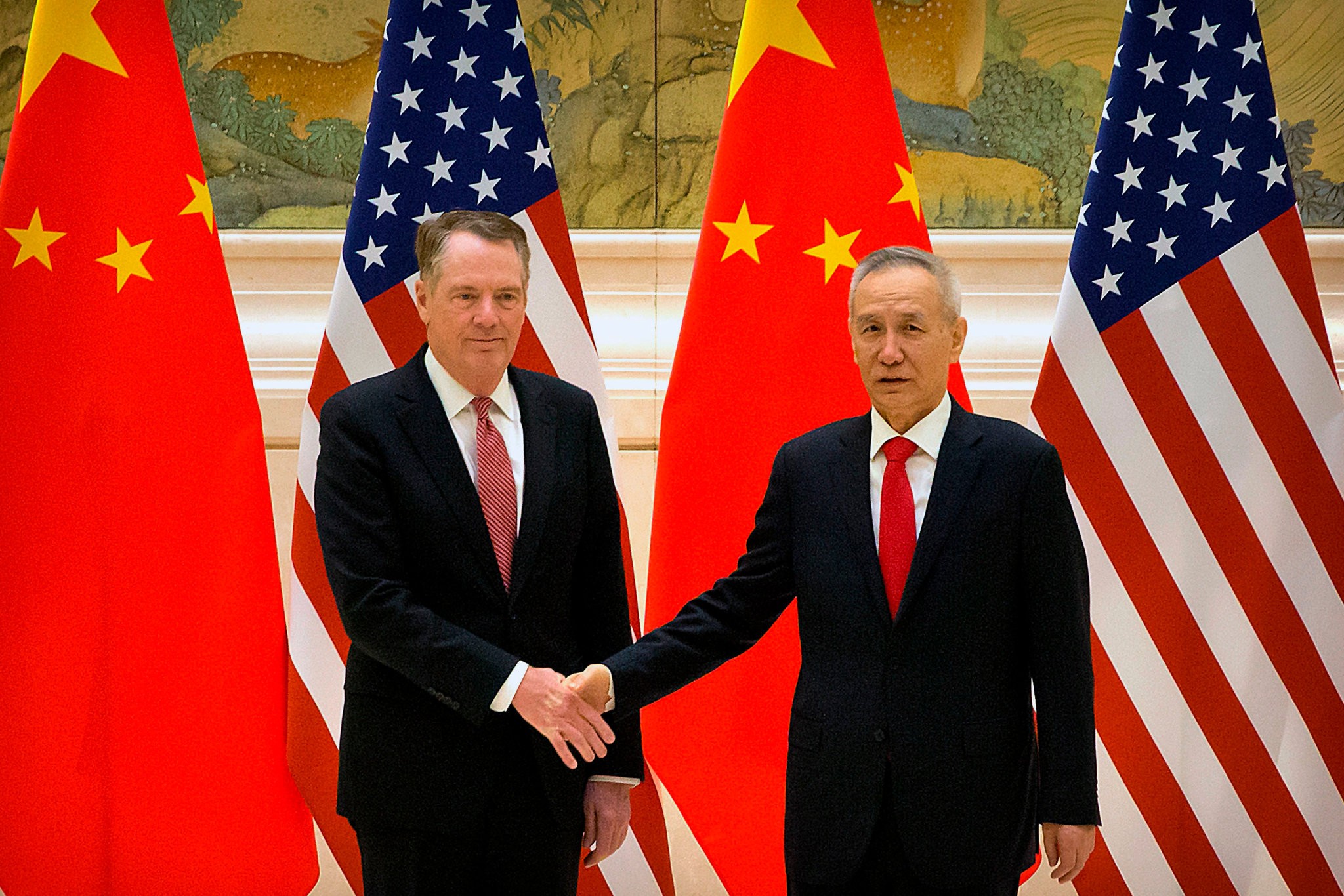Media Report

- The New York Times reports, "President Trump has signaled that he is moving toward peace with China in a trade standoff that has rattled markets and businesses globally. But as he backs off his threat to impose higher tariffs, the president's relationship with his own trade negotiator is now showing signs of strain. The situation has left Mr. Trump's trade representative, Robert Lighthizer, who is both an ardent supporter of the president and a longtime China critic, in an uncomfortable bind. While broad tariffs on Chinese imports brought Beijing to the negotiating table, Mr. Trump has grown impatient with the talks, and a consensus is growing in Washington that Mr. Trump will ultimately accept a weak deal. And despite the lack of a transformative arrangement he once promised, the president has begun dangling the idea of a 'signing summit' with President Xi Jinping of China at Mar-a-Lago, Mr. Trump's Florida resort. As a result, the president is undermining Mr. Lighthizer as he tries to pressure China to make big concessions."
- CNBC reports, "China supports the reunification of North and South Korea, but Beijing is deeply worried about Seoul's security alliance with the U.S., according to one analyst. Although North and South Korea are still far away from any sort of reunification, both nations have said that remains an ultimate goal. Such a move is hardly on the table for this week's summit between U.S. President Donald Trump and North Korean leader Kim Jong Un in the Vietnamese capital of Hanoi. Still, any draw down in tensions would be a step toward reunification. China's opinion on North Korea's affairs is important because Beijing is the primary economic and political benefactor of Pyongyang.'The Chinese have always argued that they actually support the reunification of the Korean Peninsula because when they look at their own case (of) the Taiwan Straits and the reunification that China is trying to achieve, to obstruct the reunification of the Korean Peninsula is almost morally unacceptable and is morally wrong for China to take that position,' Yun Sun, director of the China program at Washington think tank the Stimson Center, said Wednesday."
- Reuters reports, "China will announce a plan this year to form a national oil and gas pipeline group combining the long-distance pipeline assets of the country's state-owned energy companies, in the sector's largest reshuffle in two decades, said three persons with knowledge of the plan. The change is designed to open access to China's pipeline infrastructure to private and foreign energy producers as a way to spur oil and gas exploration. The open pipeline network will allow companies to focus on exploration without any additional costs to move the fuel to market. China's economic planner, the National Development and Reform Commission (NDRC), approved the plan for the group last month, including details of assets to be incorporated, and final approval from China's State Council is still pending, said one of the sources."
Calendar
- 2019-02-26 Chinese stocks rocketed higher on Trump's trade tweet, but a deal isn't a sure thing
- 2019-02-25 Trump Delays a Tariff Deadline, Citing Progress in China Trade Talks
- 2019-02-24 Trump Delays a Tariff Deadline, Citing Progress in China Trade Talks
- 2019-02-22 Saudi Arabia strikes $10 billion China deal, talks de-radicalisation with Xi
- 2019-02-21 U.S., China sketch outlines of deal to end trade war - sources
- 2019-02-20 Trump Eases Off Hard Deadline for China Tariffs
- 2019-02-19 US, China resume trade talks in Washington ahead of deadline
- 2019-02-18 UK spies think they can handle Huawei in 5G networks. The US doesn't agree
- 2019-02-17 China's new trade offer is better than a tariff war
- 2019-02-15 China and US will continue high-stakes trade talks in Washington next week
News
- The New York Times Trump Undermines Top Trade Adviser as He Pushes for China Deal
- CNBC As Trump and Kim meet, one of Beijing's chief concerns is the US-South Korea alliance
- Reuters China plans new state pipeline company in massive energy reshuffle
- The Wall Street Journal Beijing Designs New Rules After Gene-Edited Baby Fiasco
- The New York Times China Shifts, and Detroit's Big Bet Goes Sour
- The Wall Street Journal 'There's No Money Right Now': China's Building Boom Runs Into a Great Wall of Debt
- Reuters China moves to halt swine fever with hog industry overhaul
- Bloomberg Earliest Gauges Show China's Economy Seeing First Signs of Pickup
- CNN China's 'horizontal skyscraper' attraction nears completion
- Reuters China urges 'objective' view of Xinjiang after Turkey criticism
- Bloomberg China-Backed Trade Pact Faces Fresh Hurdles Amid Bali Talks
- The Washington Post How much do Chinese people love Huawei? Just ask these cute singing children.
- TIME China Appoints Political 'Rising Star' to Oversee Security in Troubled Xinjiang
- Reuters Stick to Marx Not 'Ghosts and Spirits', China Warns Party Members
- Bloomberg Rolls-Royce Offers China Engine Plant to Win Deal on Jet
Commentary
- The Washington Post Trump is headed for a bad trade deal that China won't honor
- The Wall Street Journal On China, Trump Risks Repeating Experience of Bush and Obama
- Financial Times Chinese consumers: your country needs you
- Bloomberg The American Dream Has Emigrated
- RealClear World China Again—and Again and Again
- National Interest What Happens if China Sinks Two U.S. Navy Aircraft Carriers?
